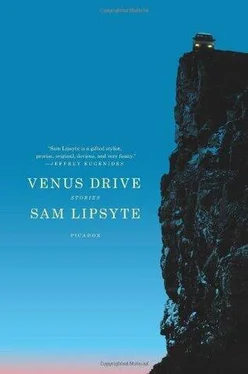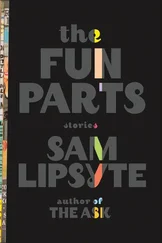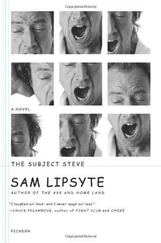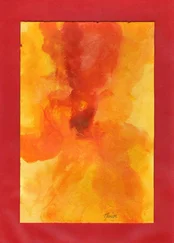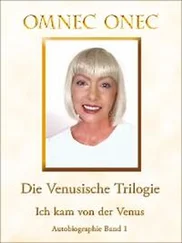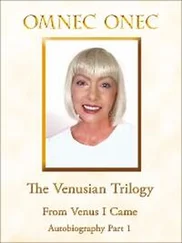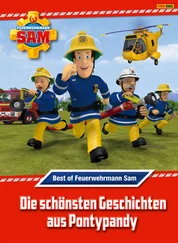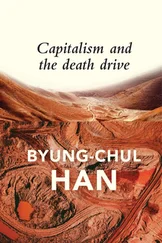Someday, I shit you not, we are going to smash the state. We are going to smash it good. We’ve got time on our side. We are up in the hills with time on our side, and time’s pal, history, is pulling for us, too. Martin says it, and I believe it. What’s not to believe? What is to be done will be done.
Up here, we are so far from our old homes. We are so far from where inside our old homes are mothers and fathers and TV’s to believe, shiny bars to hang towels from, bottles of things to wash our hair with and soften our shirts. We are far from the campus, too, where maybe I was out of my league, or maybe they were out of mine. Damn them, the ones on campus, and the ones in town. They walk around like everything is howdy-dory. They are blind to everything they cannot see. Soon as I heard about smashing the state, I was in. You don’t have to convince me the smell I’m smelling is the stench of the state. Look around, sniff it — the coffee, the roses, the rot, the aroma.
Up here, we must beware. We are safer in the hills but we are not safe. The long arm of the law is bendy and long. All we can do is wait. We are waiting and we wait.
Some days, Martin and me, we shoot the shotgun over the landlord’s roof. Some days we get in the truck, go four-by-four on the pond road when it ices, skitch it. Every day we cut the trees where they grow thick on the ridge. Martin cuts them and I haul the wood to the road. The landlord says to cut what we need for heat. The forest, it comes with the rent. But we always cut more for barricades, for bonfire fuel.
The barricades are for the revolution, the bonfire fuel for bonfires, which the landlord forbids, that fucking kulak.
We like to skitch and we like to loaf, but we can only do it until Martin’s wife Lucy comes home. Then we have to look busy. Lucy says the revolution, for revolutionists, is twenty-four-seven, but most days Lucy goes off in her blood-technician whites. Me and Martin, we drive out for a snack.
“Doing hillbilly shit is a good stress reliever,” says Martin.
“Look at Trotsky and his opera,” I say, “I mean Bronstein. Look at Bronstein.”
We are watching our pie cool at White Power Pizza. White Power Pizza is also called Hank’s, after Hank Krull, the owner, but if I say to Martin, after a long day of kulak-roof-buckshot-lofting, or pond-road skitching, or pond-ice sliding, “Hey, let’s go to Hank’s,” he has no idea what I might mean, but if I say “White Power Pizza,” we are four-by-four with all due speed.
We are watching our pie cool and feeling the coolness of glances from Hank and his White Power Pizza men. They are boys, really, fallen from football glory, with iron crosses on their floury arms, tiny tears inked under their eyes. Every pseudo-hillbilly in a fabric-softener-softened shirt knows the meaning of this cooling glance. It’s the one that comes before the knuckle-dusters, the brickbats, the blackjacks, or those funny circle blades for slicing pies.
“What the hell are you looking at?” says Hank.
“Just watching a pro at work,” Martin says.
“The key is to keep the ovens clean. They had a problem with that in Poland.”
Hank winks, shoots us a little Nuremberg number with the flat of his hand.
Every revolutionist is a student of the odds, says Lucy, or maybe Bronstein said it first. It’s a truth every Bronstein better heed.
We abandon our perfect pie, hurry out to the truck. We drive back up the pond road, past the landlord’s house. You can see her through the window with her sons, small and sandy-headed darlings, sitting like a family yuletide greeting while she reads to them from one of those big-assed animal toddler books, the kind where hippos lecture on democracy.
“Fucking kulak!” I scream, my voice lost to wind.
Brothers and sisters, we are compound-bound.
The compound is our little house off the forest road. I love our little house, the graveyard beside it, the woods all around. I love to stagger out and piss in graveyard snow. I stare up at the moonpie moon, or dream of the little girls buried at the treeline under crooked stones. They died of typhus in the age of Millard Fillmore, my favorite president from that special time when I had to memorize those ruffle-throated men. Maybe our house is haunted, but it only makes me love it more, the whine and shudder of floorboard and strut. It’s all grained up with ghostliness. I love the iron hook I carry for the hauling of the wood that Martin cuts. It is hooked in my coat for readiness.
I love to play with the little minds of the sandy sons when they come over, curious.
Also, I love Tina, in my sleeping bag, up in the attic room. Good, sweet Tina with so much to give to the world and giving it to me, sleepytime hummers and wake-ups, too.
But don’t get me wrong. Most of all I love the revolution. Maybe I’m just tired of the wait.
The landlord thinks we are communists. We are not communists. What could a kulak, with her damn hippos, know? Communists? Sure, there are some around, the next town over. We saw them once at White Power Pizza, dumber than fence-holes, yacking their excuses for Misters Stalin and Mao. Not us. We say forget it after Bronstein got it. A clusterfuck from then till now. That is our tendency, as Martin says.
Me, I tend to say, “Let’s get the twelve gauge,” or, “The pond road is totally iced. Let’s ride.”
Martin tends to need persuading. Martin tends to pour more coffee and talk about Bronstein. He loves the pointy-bearded man so much, he says his born name. Bronstein, Bronstein, Bronstein. Bronstein does Siberia, Bronstein smites the pesky Kronstadt sailors, Bronstein peers through learned spectacles into the dark tomorrow.
“Bronstein had Hitler pinned,” says Martin. “He knew what was coming. He figured Stalin out, too. Ergo, ice pick.”
I can’t help but like the ice pick part. I can see the skullmeat in the garden.
There’s a winter’s worth of wood already, but we keep the maul and wedge out front with some scraps to whack at for when Lucy drives up. While we make our preparations, drink down our vodka-and-Gatorades near the scrap-whack part of the yard, the little kulak boys come over. They are miniature soldiers, future sausage casings of the pork apparatus. They sit smug on our stump chairs, as though they own them, which in the world as it is, as opposed to how it could be, they do. I throw a bag of shake and a packet of extra-wides into the lap of the older one.
“If you can roll it, you can smoke it,” I say.
“I’m ten.”
“Happy birthday,” I say.
“It’s not my birthday.”
“Then happy nothing,” I say
“Everywhere,” says Martin, lowering the maul to the grass, “there are children younger and fiercer than you, ready to shuck the yoke of oppression.”
“The yolk is too runny,” says the smaller sandy son.
“That’s the point, little man,” I say.
“What’s the hook for?”
“For the gruesome necessaries,” I tell him.
“Mom says she’s going to evict you.” says the older son to Martin.
“Do you believe the hippos operate under false consciousness?”
“Mom said the university kicked you out because you were crazy, and your friend here because he was dumb.”
“Don’t you see the crisis built into late hippo capitalism?” says Martin. “There’s nothing idealistic about it. It’s fucking math.”
“Don’t curse-word me,” says the boy. He hands the shake and papers to his smaller kulak brother.
“Take this to Mom,” he says. The other boy speeds off through trees.
“You’re in deepies now,” says the older sandy son. “Mom said one more little thing and she was calling Hank Krull.”
Читать дальше
